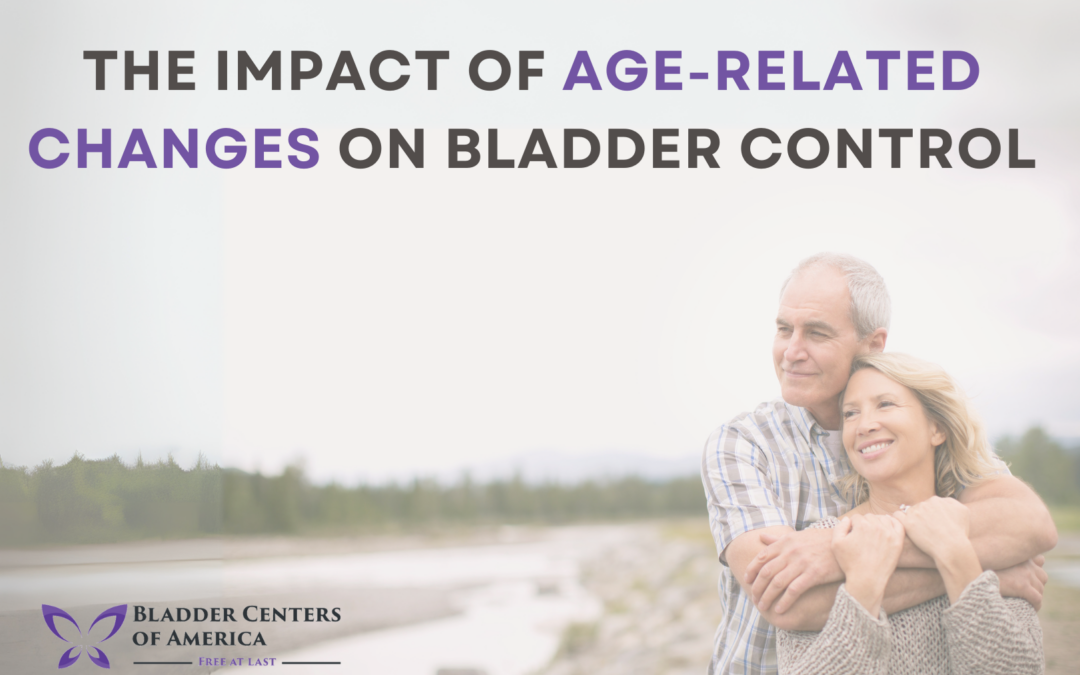As people age, their bodies naturally undergo changes that can affect their bladder control. These age-related changes can be exacerbated by medical conditions and/or medications associated with aging. Symptoms of urinary incontinence are often the result of these changes, and there are treatment options available for those who suffer from it. This blog post will explore the impact of age-related changes on bladder control, the causes, symptoms, and potential treatments for this condition.
Definition of age-related changes
Age-related changes refer to any physical, mental, and emotional changes that occur as we age. These changes can be the result of the normal aging process or from medical conditions and medications associated with aging. Common age-related changes that may affect bladder control include decreased strength in pelvic muscles, bladder nerve damage, weakened bladders, and enlarged prostate glands. In addition, hormonal changes can also increase the risk of developing urinary incontinence as we age.
Impact of age-related changes on bladder control
Age-related changes can have a significant impact on bladder control, causing issues such as urinary incontinence. Urinary incontinence occurs when there is an inability to hold or control urination, potentially leading to involuntary leakage. This condition can be caused by weakened pelvic muscles that can no longer support the bladder, nerve damage, or enlarged prostate glands. In addition, hormonal changes associated with aging can also increase the risk of developing urinary incontinence. The impacts of age-related changes on bladder control should not be taken lightly and should be addressed by talking to your doctor who may recommend different treatment options.
Causes of urinary incontinence
Normal aging process
As we age, our ability to control our bladder can become more difficult. Some common signs of this include needing to urinate more often or having difficulty starting or stopping the flow of urine. For some people, this can even lead to nighttime incontinence, where they involuntarily wet the bed during sleep. While these symptoms are part of normal aging, it is important to talk to your doctor as there may be treatments available that could help manage any bladder control issues.
Medical conditions and medications associated with aging
Aging can lead to several medical conditions and associated medications. Common illnesses that elderly people may experience include arthritis, diabetes, high blood pressure, dementia, Alzheimer’s disease, heart disease, and stroke.
These conditions often require the use of a variety of prescription medications to help manage them. For elderly individuals taking multiple prescriptions at once, it is important to check with their doctor or pharmacist to make sure all medications are interacting properly.
Symptoms of Bladder Control Issues
Bladder control issues can present in a variety of ways. Common symptoms may include needing to urinate more frequently, difficulty starting or stopping the flow of urine, and nighttime incontinence.
Additionally, feeling an urgent need to urinate, leaking small amounts of urine when laughing, coughing or sneezing, and waking up in the middle of the night to use the bathroom more than once can also be signs of bladder control issues. If any of these symptoms occur regularly, it is important to consult with your doctor for evaluation and treatment.
Treatment Options for Urinary Incontinence
Urinary incontinence is a common problem that can have multiple treatment options. Behavioral therapies such as bladder training timed voiding, and pelvic floor muscle exercises are important first steps for treating urinary incontinence.
Additionally, medications, urethral inserts, and electrical stimulation may also be used to help control symptoms of incontinence. For those with more severe cases of urinary incontinence, surgery may be an option. Talk with your doctor to determine the best course of action for you.
Aging can lead to changes in bladder control, but some steps can be taken to help manage symptoms. Many treatments are available including lifestyle modifications, medications, and surgeries.
If you think you may have an incontinence issue, talk to your doctor as soon as possible.
With the right treatment and care, you can take steps to regain full control over your bladder today.

